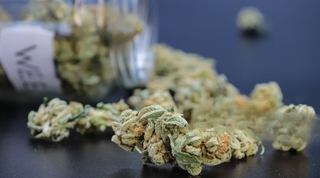
Introduction
You’re using THCa to chill, ease discomfort, or just level up your wellness routine—but now you’re wondering:
How long does THCa stay in your system? And more importantly, can it show up on a drug test?
Whether you’re using raw THCa flower, tinctures, or topicals, understanding how your body processes this non-psychoactive cannabinoid is key—especially since it can convert into psychoactive THC under certain conditions.
In this guide, we’ll break down how long THCa stays in your system, what impacts that timeline, and what to know before your next drug screening or tolerance break.
Quick Answer: How Long Does THCa Stay in Your System?
If you’re looking for the fast facts, here they are:
- Average range: 2 to 15 days, depending on your usage
- Frequent or high-dose users: Can stay longer, even up to 30+ days
- Raw THCa = non-intoxicating, but may still be detectable under certain conditions
The real kicker? Even though THCa won’t get you high unless it’s heated, your body can still store it—or its THC counterpart—in fat cells. That’s why it’s important to understand both the science and the nuances behind how you consume it.

What Is THCa and How Is It Processed by the Body?
THCa, or tetrahydrocannabinolic acid, is the raw, non-psychoactive precursor to THC. It’s found in fresh hemp or cannabis plants and stays in this “acid” form unless exposed to heat—a process called decarboxylation. That means:
- Raw tinctures, cold-pressed juice, or topicals = stays as THCa
- Smoked or vaped flower = converts to Delta 9 THC
When THCa remains raw, it doesn’t produce a high. But once heated, it transforms into the psychoactive compound most drug tests are designed to detect.
Your body processes THCa like other cannabinoids: it’s fat-soluble, which means it may be stored in your fat cells and released gradually over time—especially with consistent use. Even if you’re not feeling any effects, your body still notices.

Factors That Affect How Long THCa Stays in Your System
There’s no one-size-fits-all answer—because your body and your habits matter. Here's what can influence your personal THCa timeline:
Method of consumption:
- Raw tinctures or cold-pressed products = mostly THCa
- Smoked/vaped = converted to THC = detectable for longer
Frequency and dosage:
- Daily users or high-dose users can retain cannabinoids longer
Body composition:
- Cannabinoids like THCa are stored in fat—so body fat percentage plays a role
Metabolism and hydration:
- Faster metabolism = quicker clearance
- Staying hydrated may support your body’s natural detox process
The more regularly and intensely you consume THCa—especially in heated forms—the longer it may linger in your system.

How Long Do the Effects of THCa Last (If Any)?
Even though THCa won’t get you traditionally “high,” it may still produce subtle therapeutic effects, especially when used raw. Here’s what you might experience:
- Raw THCa (unheated): May help reduce inflammation, ease tension, or support focus without altering your mental state. Effects typically last 2–6 hours depending on delivery method.
- Heated THCa (smoked/vaped): Converts to Delta 9 THC, which means euphoric effects can last 4–8+ hours, depending on tolerance and dose.
Keep in mind: just because the effects wear off doesn’t mean the compound is out of your system. Detection windows are much longer than the felt experience.
Will THCa Show Up on a Drug Test?
This is the big question. And the short answer? Yes, it’s possible.
Here’s how:
- If you smoke or vape THCa: It converts to Delta 9 THC, which is exactly what drug tests look for.
- If you’re taking raw THCa only: Less likely to be detected—but still possible depending on test sensitivity.
Typical detection windows for THC/THCa use:
- Urine: 3–15+ days (longer for chronic users)
- Blood: Up to 48 hours
- Hair: Up to 90 days
- Saliva: 24–72 hours
Most standard drug tests don’t look for THCa specifically—but they absolutely detect the THC it can turn into. If you’re being tested for work, legal reasons, or athletics, it’s better to play it safe.

How to Use THCa Safely If You’re Concerned About Testing
If you’re trying to keep things clean while still enjoying the benefits of THCa, here are some best practices:
- Stick to raw, unheated THCa products like tinctures, topicals, or capsules
- Avoid smoking or vaping THCa flower before a test
- Always choose lab-tested products with Certificates of Analysis (COAs) that confirm THCa vs THC content
- Time your doses wisely—give your body at least 2 weeks of clean time before a known drug test
- Consider combining THCa with CBD or CBG, which won’t trigger psychoactive effects and may help balance your endocannabinoid system
You can still make THCa part of your wellness routine—just be intentional about how and when you use it.
Conclusion
THCa may be non-psychoactive in its raw form, but your body still treats it like any other cannabinoid—especially if it gets converted to THC. That means it can show up on a drug test, linger in your system, and build up over time depending on how you use it.




